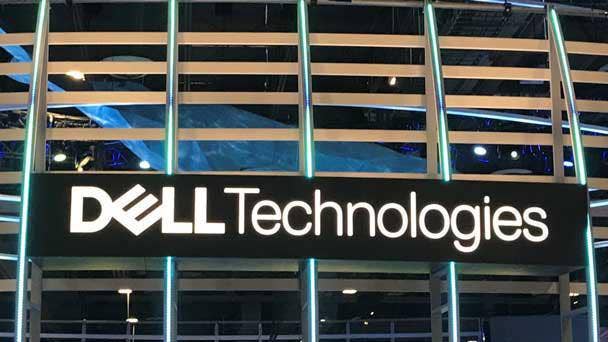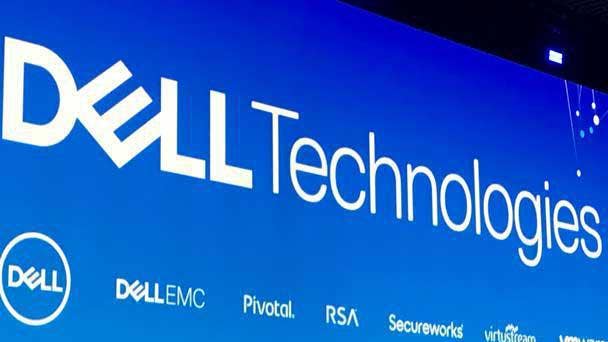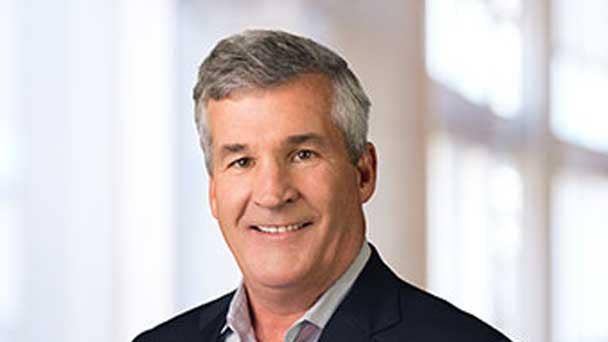John Byrne On Dell’s PC, Laptop Channel Strategy
Dell Technologies North American President of Sales John Byrne talks to CRN about his sales and go-to-market strategy for Dell’s client systems business as channel partners voice their concerns.

John Byrne: ‘We Want Both Routes Of Market To Grow’
Amid channel partner concerns regarding Dell Technologies’ recent decisions around its client systems sales motion, John Byrne is making his voice known that Dell is “all in” with partners.
“Let me be super clear and leave a message for the partners: Look, we’re all in, but I want the partners to be selling the full portfolio. I want them to be working with us as we help our customers across their digital and cloud journey,” said Byrne, president of North America Sales for Dell, in a 15-minute interview with CRN.
Dell’s Client Solutions Group (CSG), which consists of PCs, laptops, notebooks and monitors, has been on fire in 2021. The Round Rock, Texas-based company generated record-breaking CSG sales of $14.3 billion during its recent second fiscal quarter, representing a growth rate of 27 percent year over year.
“Here’s our channel strategy for client systems: We want both routes of market to grow—both direct and channel,” he said.
As many solution providers worry that Dell is shifting its client systems sales model toward direct versus partner-led, Byrne talks to CRN about his CSG sales strategy and directives as well as the company’s partner commitment.
“What I have made abundantly clear to my core [direct] sellers is: Understand the rules of engagement. If you break those, bad things will happen to you,” he said.

We’ve heard under your directive that both direct reps and channel reps at Dell are moving to a client direct-first model, rather than a partner-led model. Is that true?
Here’s our channel strategy for client systems: We want both routes of market to grow—both direct and channel. When I look at the performance with that strategy and we talk about how do we enforce it— just look at our channel orders in the first half, significant double-digit growth. Look at our PC channel orders, which grew over 44 percent.
Look, I have a big [team of] core sellers, I have a wonderful channel ecosystem, and therefore, we have a design within our program which is deal registration. And we want our partners to engage with our core sellers on opportunities, ideally across a full portfolio. But as this is a PC discussion, we want them to get that deal registration. When partners have [deal registration], I expect my team to honor that deal registration. For our deal registrations, not only was the business up double digits, client was up even faster. Our deal registration was up 8 percent year over year.
But I also want to be very clear, what I have made abundantly clear to my core sellers is: Understand the rules of engagement. If you break those, bad things will happen to you. I stood on stage [in 2017] when I said, ‘Look, if you break our rules of engagement, I’m going to assume because we’re a wonderful organization, you just made a mistake. I will not pay you for that mistake. However, should I find that you’ve done your training, you’ve broken a rule of engagement, and [then you break] it again—you won’t be here.’
If you think about our client [market share], we took another in excess of 300 basis points of share last quarter. We’re now at 37 percent of the market. There’s 63 percent I want to go after.

Partners say you’ve told the team that it’s a top priority to take client system deals direct, and that Dell channel reps should unhook partners from PC deals. Are you denying that?
Let me give you a very firm statement. We are not interested in any share shift—zero. No share shift. We want to drive our core sales team to drive incremental business. We are a $94 billion company, and we’re playing in a $1.3 trillion market. We’re proud of the momentum and proud of the growth. There’s plenty of whitespace.
Look, I’ve got the direct sales team, I got the channel specialty team, I got the specialty team—all reporting up to myself. So at end day, I can only talk about the results. So there’s me talking those words, but think of the numbers I just threw at you. Then if you look at the infrastructure, my channel sever business is up 51 percent year over year in the second quarter. We took close to another 300-plus basis points share. We are nearly 40 percent of the mainstream server market. Our storage business was up double digits in the channel.
So how would you describe Dell’s client systems sales strategy: direct-led, partner-led or channel-neutral?
All of the above. We want both routes. We want both to be growing and both to be growing dramatically. We are taking share from HP, Lenovo and other competitors in this space.

Has Dell recently changed its client system compensation models for Dell direct reps and Dell channel reps?
Look, [Dell President of Global Sales and Customer Operations] Billy Scannell (pictured) has like 27,000 sellers around the world. Our channel sellers are paid when we sell through the channel. Our core sellers are paid on PCs when it’s direct and channel.
Look, I can’t go into the specifics of the compensation plan. I’m sure there’s a bunch of people in our competitive environment who would love to hear that. But here’s what I can tell you: Our strategies and our comp strategies are designed to drive sustained, profitable growth right now and in the future. Within that, partners are critical to that acceleration—whether it’s PCs, whether it’s storage, whether it’s server, whether it’s helping our customers in their multi-cloud journey, whether it’s to get them productive and working from anywhere.
The good news is the team has built a phenomenal partner program—better than when I had it. I mean, it was a highly profitable program when I had it. Now in terms of focus areas: NBI (New Business Incentive), PowerUp [partner program], front-end [rebates] on PowerStore—it’s an even better program, and the results are showing that. Look, our channel business is up, whether it’s PCs, whether it’s server, whether it’s storage, everything is up double digits. The team’s done a great job.
When you were channel chief in 2017, the message was that Dell is going through a business line of incumbency model for PC saleswhere it would be a partner-led model. There’s now conflict in the field. What has changed?
At the end of the day, the partner principles and program principles are there, including deal registration and partner of record. The intent is to drive growth across all lines of business, while maintaining a high level of trust with the partners. That is what we’re doing.

In 2017 it was a business line of incumbency model for Dell client’s business, has it changed since then?
I applaud you for remembering what I said in 2017, but I do know what we have now. We have deal registration which remains and remains firmly, and we’re committed to this process. I want to be very clear: The business on client is growing, deal registration is growing, new buyers are growing [and] we’re taking share on client.
But let me be super clear and leave a message for the partners: Look, we’re all in, but I want the partners to be selling the full portfolio. I want them to be working with us as we help our customers across their digital and cloud journey. As you think about working from anywhere, as you’re thinking about application layers, as you’re thinking about security—I want our partners to lean in on [everything].
Here’s a stat for you, we’re making massive progress in storage. The channel’s done a phenomenal job. We can’t do the whole data center without them. Now when you look at IDC in North America and you look at Dell’s share, add up the share of every other named competitor in storage and see if all of them, added together, add up to Dell. We’re making new massive progress. The partners play a critical part in that.
I speak to partners every single day, you can take your pick. I also made it very clear to them—we’ve had this conversation directly, many of them are on our Partner Advisory Board—if they see something happen in the field [that is] a violation—you call me. They know my number and my email. Look, I’m always here. Billy [Scannell] is always here.